
Latest Heart Disease News and Research
As coronavirus spreads widely, millions of older Americans live in counties with no ICU beds
More than half the counties in America have no intensive care beds, posing a particular danger for more than 7 million people who are age 60 and up - older patients who face the highest risk of serious illness or death from the rapid spread of COVID-19, a Kaiser Health News data analysis shows.
Researchers produce fat busting proteins in the lab
Triglycerides, those fats that seem to be the bane of any diet, remain a mystery for many researchers. Plenty of them are in Big Macs, deep pan pizza and the like, but some are a necessity to fuel the body for daily activities.
Researchers highlight urgent need for public health leadership during COVID-19 pandemic
For decades, public health officials have directed the containment of emerging pandemics - perhaps most notably - the worldwide eradication of smallpox starting in the early to mid-1960s.
The cost of excessive sugar in the diet
A new study from the MRC London Institute of Medical Sciences, in the UK, reports that while eating foods rich in sugar does not necessarily make you fat, they can make you very sick. They do this by increasing the level of a compound called uric acid in the blood. The study is published in the journal Cell Metabolism in March 2020.
Dietary sugar has negative impact on health independent of obesity
Sugar-rich diets have a negative impact on health independent of obesity reports a new study led by the MRC London Institute of Medical Sciences, UK.
Mental stress may be a stronger predictor of repeat heart attack
We all have stress in our lives--whether it's due to financial woes, work pressures, relationship issues, illness or even natural disasters or health crises like the emerging coronavirus.
Mental stress may better predict repeat heart attack than physical stress
For heart attack survivors, psychological stress may better predict future heart attack or disease than physical stress.
Higher daily step counts linked with lower blood pressure
New data has revealed that those who take more tracked steps each day have lower blood pressure than those who take fewer.
First-of-its kind study identifies the hidden costs of avoidable deficiencies in heart failure
Today, the first investigation of its kind, published in Open Heart, has identified the hidden costs of heart failure (HF) due to under-managed but treatable iron deficiency (ID) and iron deficiency anaemia (IDA). Leading UK clinicians assessed the one-year data of around 80,000 people with HF as part of the analysis.
Hypertension-related deaths increase in the U.S across all age groups
While it typically has no symptoms, high blood pressure--or hypertension--has serious health consequences.
People taking more steps daily found to have lower blood pressure
The smart watches seen on the wrists of roughly 1 in 5 Americans could be more than just a fun gimmick but a potentially useful research tool to track habitual physical activity levels.
Statins may protect against heart damage caused by breast cancer therapies
Statins are widely used to lower cholesterol and prevent heart disease and related deaths, but can they also help guard against heart damage caused by certain breast cancer therapies?
Homeless heart attack patients receive less treatment and are more likely to be readmitted
Homelessness has become a social crisis and public health problem around the world, affecting people of all ages. Most homeless people are at a disadvantage with few resources, and may or may not have adequate health insurance.
Frailty plays a key role in outcomes following mitral valve procedures
Frailty measurements have become increasingly important in assessing surgical risk in patients with mitral valve disease, and research published online today in The Annals of Thoracic Surgery shows that frailty plays a significant role in outcomes following mitral valve procedures.
More protein intake could cut the risk of developing atrial fibrillation in women
Women who ate slightly more than the recommended daily amount of protein were significantly less likely to develop atrial fibrillation
Identification of 'Hodor' in the gut lining highlights potential way to curb mosquito populations
The identification of an insect-specific metal-sensing receptor in the gut lining highlights a possible new way to curb populations of disease-transmitting insects such as mosquitoes.
A view from the front lines of California’s COVID-19 battle
On Tuesday, Dr. Jeanne Noble devoted time between patient visits to hanging clear 2-gallon plastic bags at each of her colleagues' workstations.
Obese children more prone to anxiety, depression and shortening of life
Two studies published in the journals PLOS Medicine and BMC Medicine in March 2020 show that obesity in childhood is linked to a higher risk of future anxiety, depression, and death in early adult life compared to children in the general population. This could shape efforts to detect specific risk factors that predispose children to obesity and thus prevent it.
Listening to music for 30 minutes a day provides benefits after heart attack
Listening to music can be enjoyable, but is it also good for your heart? Patients who suffered episodes of chest pain soon after a heart attack, known as early post-infarction angina, had significantly lower levels of anxiety and pain if they listened to music for 30 minutes a day, according to a study presented at the American College of Cardiology's Annual Scientific Session Together with World Congress of Cardiology
Women experience more chest pain, but lesser artery narrowing than men
Women with coronary artery disease that reduces blood flow and oxygen to the heart muscle (ischemia) have significantly more chest pain caused by plaque build-up, yet less extensive disease as compared with men, according to new research presented at the American College of Cardiology's Annual Scientific Session Together with World Congress of Cardiology.
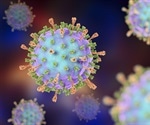

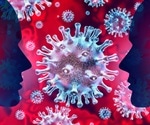


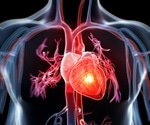


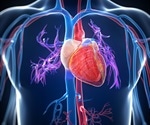

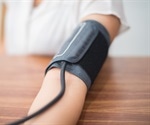

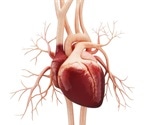

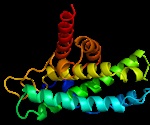
_on_human_skin-Tacio_Philip-1000_63ca0542f3674714a09eca4dc8beabab-150x125.jpg)


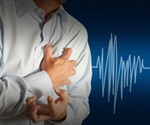
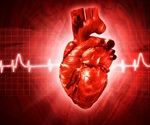
































No hay comentarios:
Publicar un comentario